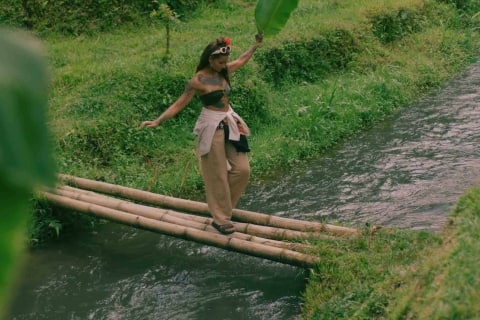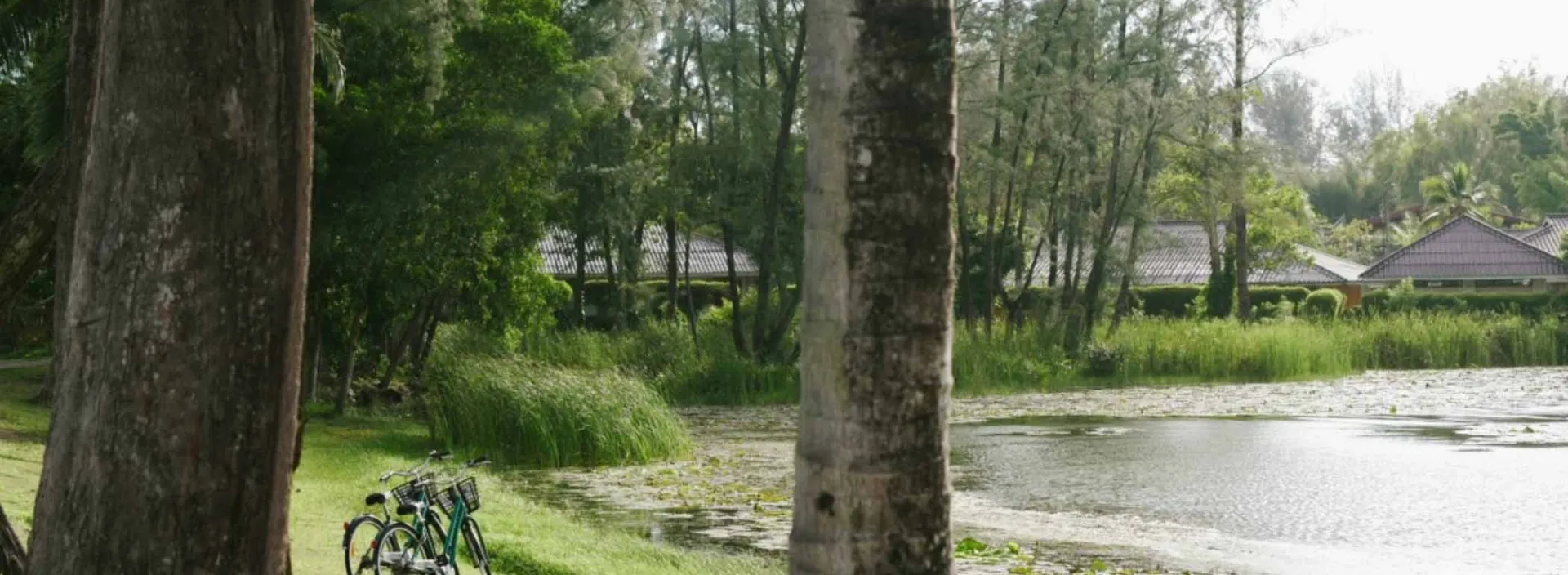OVERVIEW
Amidst the fervour of environmental restoration and ecosystem guardianship, comes the concept of rewilding. While rooted in nature's revival, humans now find ourselves on a parallel journey of reconnection – a burgeoning movement that not only rejuvenates landscapes but also revitalises our very essence.
- 28/08/2024
- 10 minutes
In the face of mounting environmental challenges, the concept of rewilding presents a glimmer of optimism. This approach to conservation and ecological restoration strives to return nature to a harmonious and optimal state, by reintroducing native or lost flora and fauna into their natural habitats, and effectively rehabilitating ecosystems, fostering biodiversity, and mitigating the adverse impacts of climate change.
Globally, rewilding strategies are being deployed to mend scarred landscapes. One notable technique is the Miyawaki method, pioneered by Japanese plant ecologist Professor Akira Miyawaki, where 100% organic, dense and diverse forests are created within a short span of 20-30 years. At Laguna Phuket, our team has recently worked with rewilding specialists SUGi to establish pocket forests on our premises.
Notably, our Earth is not the sole beneficiary of rewilding principles. In recent times, a movement known as ‘human rewilding’ has gained traction for its positive impact on health and wellbeing.

Human rewilding
Much like environmental rewilding, human rewilding beckons us to return to a more primal and harmonious state of being. Despite the undeniable comforts and advancements brought by technology and industrialisation, these very conveniences have dulled our senses, and estranged us from the natural world.
Human rewilding extends an invitation to reconnect with nature and rediscover a simpler, truer version of ourselves. It has also been scientifically proven to enhance health and overall wellbeing.
Here are some ways to harness the benefits of rewilding yourself:
Spend time in nature’s embrace

In order to return to a wilder state, we must first take ourselves out of urban and domesticated settings and spend time in natural spaces that have had minimal human intervention. This could entail spending time at a national park, sitting by a lake, wandering through the woods, exploring a beach, or even taking a stroll through neighbourhood gardens.
The amount of time required to unlock the benefits of nature varies, as research indicates that even as little as 15 minutes per day can yield rewards. In Japan, the popular practice of forest bathing or ‘shinrin-yoku’, is a slow and mindful exploration of nature, and studies have found that just two hours can boost the immune system, lower blood pressure, aid sleep and improve concentration.
Unplug from the digital realm

While envisioning a world devoid of technology might seem daunting, occasional breaks or controlled usage of digital devices are integral to the concept of human rewilding. Taking incremental steps, such as designating device-free intervals during meals or establishing technology-free cosy corners at home, contribute to the process.
Commune with the earth

Grounding (also known as earthing) involves walking barefoot on natural surfaces such as grass, soil, or sand. While commonly enjoyed by children, it's a practice often overlooked by busy adults.
Research into the benefits of grounding reveals that skin contact with the surface of the earth (either with feet or hands) can alleviate inflammation, bolster immune responses, assist wound healing, improve sleep, and more. Just 15-30 minutes of barefoot walking each day is a good starting point.
Explore new terrain

Seeking new and challenging outdoor adventures to explore is a great way to let nature be your guide. Scaling a mountain with scrambling (a practice that uses both hands and feet to climb over and up rocks) involved, traversing diverse landscapes, or even simpler activities such as climbing a tree or swimming in a river all align with this ethos.
The key is to notice and get attuned to the little things – weather patterns, the flow of water, and disturbances to terrain such as fallen rocks and trees. Engaging our senses in this manner reconnects us with primal instincts, which are often dormant in today’s modern world.
Observe nature with intent

Direct your attention towards the intricate ecosystems, indigenous plants, and captivating wildlife inhabiting each locale. Study the patterns adorning trees, trace intricate root systems, notice new leaves unfurling, and marvel at blooming flowers. Observe the movements of wildlife and their interactions with the environment. Note the symbiotic relationship among flora and fauna in a forest sustains the circle of life.
By nurturing curiousity and attentive observation, we cultivate a deeper appreciation for the wonders of nature and grasp its indispensable role in sustaining all life, including our own.

